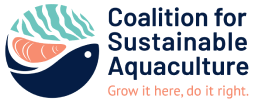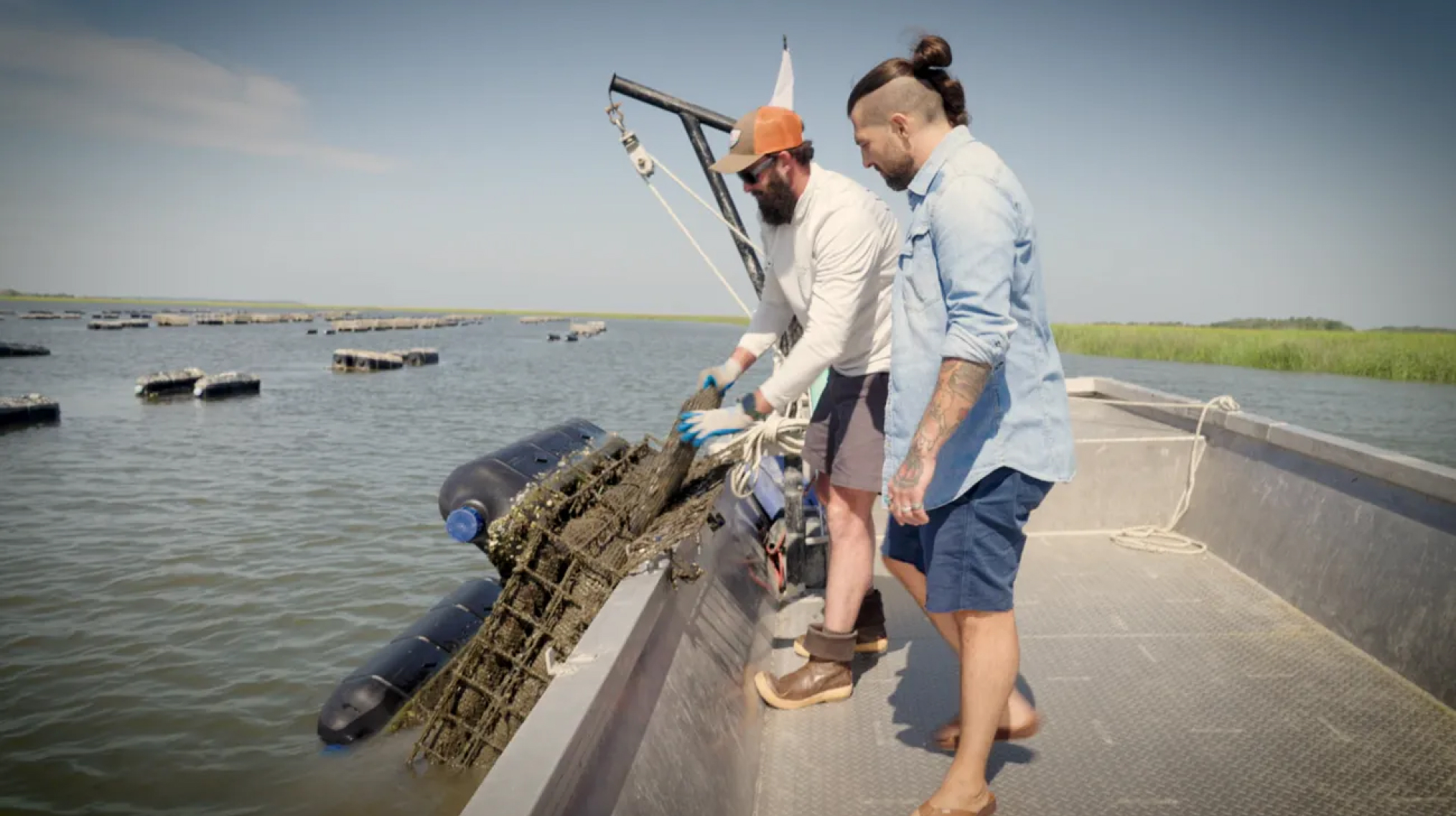US Congress to consider SEAfood Act to help chart a responsible path forward for homegrown aquaculture
(WASHINGTON—October 12, 2023) Sustainable seafood grown in United States offshore waters is one step closer to being on the menu as the U.S. Congress considers the Science-based Equitable Aquaculture Food Act, or SEAfood Act, a bipartisan bill introduced today by Representative Nancy Mace (R-SC) and Representative Jimmy Panetta (D-CA).
“We are grateful for the bipartisan leadership of Representatives Mace and Panetta to advance the growth of aquaculture in U.S. federal waters,” said Andrew Zimmern, an award-winning chef and founding member of the Coalition for Sustainable Aquaculture. “It’s a responsible, science-based approach that’s good for the economy, for our domestic seafood industry, for our ocean and for American consumers.”
The SEAfood Act is the only measure in Congress that lays the groundwork for an equitable and inclusive seafood economy of both farmed and wild-caught fish while prioritizing data and science in the development of offshore aquaculture in the U.S. It will be a critical first step to help meet growing consumer demand for seafood and create jobs in vulnerable coastal communities in the future.
“As a chef, I love using fresh, local ingredients. But when it comes to seafood, there just isn’t enough of it,” said Mary Sue Milliken, California-based chef and co-founding CSA member. “The SEAfood Act is a science-based approach that will lay the foundation for sustainable, equitable offshore aquaculture in the U.S. so we can put more homegrown seafood on plates and menus.”
Up to 90% of the seafood consumed in the U.S. is imported, and half of that is farmed. The development of offshore aquaculture can help meet the growing demand for homegrown seafood and add stability to the domestic seafood supply chain, but the U.S. currently lacks a federal regulatory framework with the requisite strong standards needed for sustainable, equitable and profitable offshore aquaculture.
“I’m a fisherman, and the truth is wild-caught fish alone can’t meet the growing demand for seafood,” said Trey McMillian, owner of CSA’s Lowcountry Oyster Co. in South Carolina, who traveled to Washington last month to educate members of Congress on sustainable aquaculture. “Sustainable offshore aquaculture can help, and it creates jobs. The SEAfood Act is the responsible first step to developing this industry.”
The SEAfood Act will:
- Charge the Government Accountability Office with producing a report that details permitting, monitoring, and regulatory options for governing offshore aquaculture in the U.S.;
- Direct the National Academies of Sciences, Engineering, and Medicine to complete a study on the scientific basis for efficient and effective regulation of offshore aquaculture;
- Authorize the National Oceanic and Atmospheric Administration (NOAA) to create an offshore aquaculture assessment program that prioritizes research and transparency using on-the-water projects that cultivate species and are operated in partnership with land and sea grant institutions; and
- Create a grant program, under NOAA, for minority-serving educational institutions to establish aquaculture centers of excellence that meet the needs of a growing domestic and sustainable aquaculture industry including developing or enhancing undergraduate and graduate aquaculture curriculum, career development and extension programs.
Earlier this year, CSA launched a video campaign featuring chefs and fish farmers advocating for a science-backed approach to sustainable offshore aquaculture. Watch Conversations with the Coalition here.
The Coalition for Sustainable Aquaculture (CSA) is a partnership of environmental advocates, industry leaders, and award-winning chefs who are coming together to chart a responsible path forward for a safe, sustainable, and science-based offshore aquaculture industry in U.S. waters. For more information, visit CoalitionForSustainableAquaculture.org.

